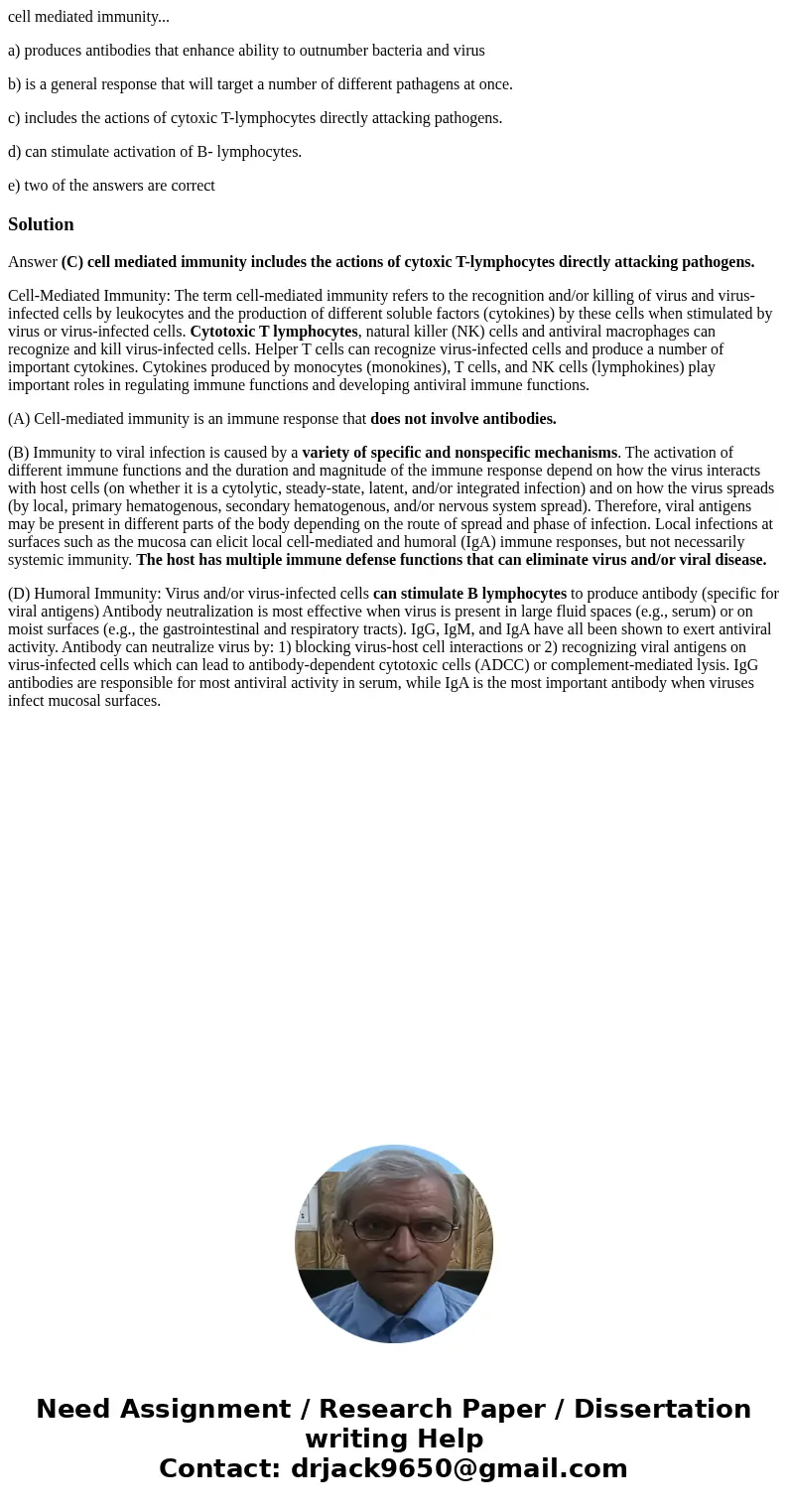cell mediated immunity a produces antibodies that enhance ab
cell mediated immunity...
a) produces antibodies that enhance ability to outnumber bacteria and virus
b) is a general response that will target a number of different pathagens at once.
c) includes the actions of cytoxic T-lymphocytes directly attacking pathogens.
d) can stimulate activation of B- lymphocytes.
e) two of the answers are correct
Solution
Answer (C) cell mediated immunity includes the actions of cytoxic T-lymphocytes directly attacking pathogens.
Cell-Mediated Immunity: The term cell-mediated immunity refers to the recognition and/or killing of virus and virus-infected cells by leukocytes and the production of different soluble factors (cytokines) by these cells when stimulated by virus or virus-infected cells. Cytotoxic T lymphocytes, natural killer (NK) cells and antiviral macrophages can recognize and kill virus-infected cells. Helper T cells can recognize virus-infected cells and produce a number of important cytokines. Cytokines produced by monocytes (monokines), T cells, and NK cells (lymphokines) play important roles in regulating immune functions and developing antiviral immune functions.
(A) Cell-mediated immunity is an immune response that does not involve antibodies.
(B) Immunity to viral infection is caused by a variety of specific and nonspecific mechanisms. The activation of different immune functions and the duration and magnitude of the immune response depend on how the virus interacts with host cells (on whether it is a cytolytic, steady-state, latent, and/or integrated infection) and on how the virus spreads (by local, primary hematogenous, secondary hematogenous, and/or nervous system spread). Therefore, viral antigens may be present in different parts of the body depending on the route of spread and phase of infection. Local infections at surfaces such as the mucosa can elicit local cell-mediated and humoral (IgA) immune responses, but not necessarily systemic immunity. The host has multiple immune defense functions that can eliminate virus and/or viral disease.
(D) Humoral Immunity: Virus and/or virus-infected cells can stimulate B lymphocytes to produce antibody (specific for viral antigens) Antibody neutralization is most effective when virus is present in large fluid spaces (e.g., serum) or on moist surfaces (e.g., the gastrointestinal and respiratory tracts). IgG, IgM, and IgA have all been shown to exert antiviral activity. Antibody can neutralize virus by: 1) blocking virus-host cell interactions or 2) recognizing viral antigens on virus-infected cells which can lead to antibody-dependent cytotoxic cells (ADCC) or complement-mediated lysis. IgG antibodies are responsible for most antiviral activity in serum, while IgA is the most important antibody when viruses infect mucosal surfaces.

 Homework Sourse
Homework Sourse